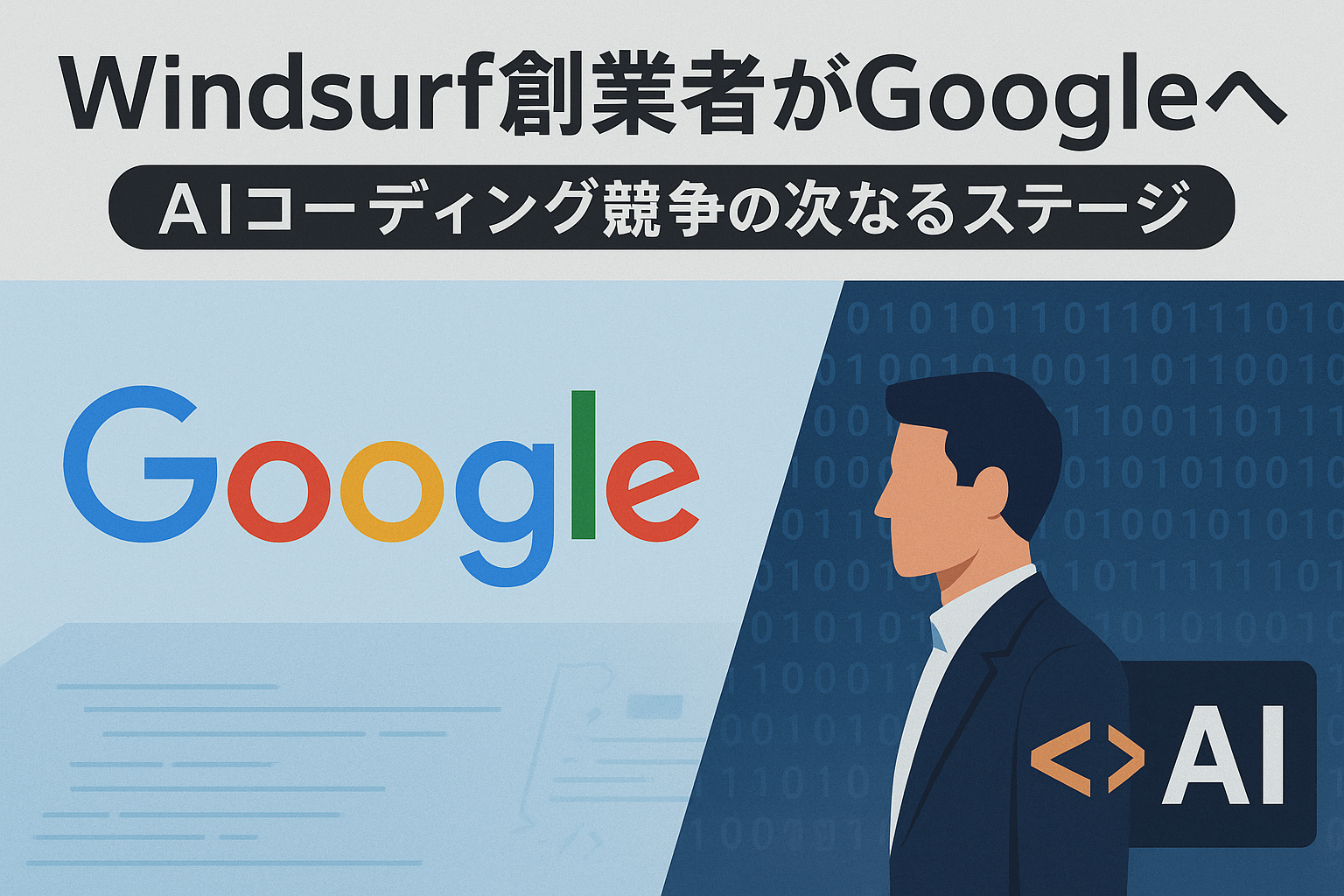On July 11, 2025, it was announced that the founding members of U.S.-based Windsurf, known for its AI-powered coding tools, would be joining Google (DeepMind), sending shockwaves through the tech industry. Windsurf had garnered attention for its innovations in streamlining software development with AI, and reports suggested that OpenAI had been exploring a $3 billion acquisition of the company.
Google vs. OpenAI: A Clash of Strategic Interests
The breakdown of OpenAI’s acquisition talks with Windsurf appears to have stemmed from Microsoft’s involvement. As a major investor in OpenAI, Microsoft reportedly imposed contractual clauses requiring OpenAI to share the intellectual property of any acquired companies. These stipulations raised concerns on Windsurf’s side, ultimately derailing the deal.
In contrast, Google opted not to acquire the company itself, but instead pursued an acqui-hire — acquiring the talent team-by-team. This approach led to a successful deal reportedly worth $2.4 billion, marking a significant shift in value from corporate entities to individual talent in the age of AI.
Strengthening the Gemini Team: DeepMind’s Strategic Move
The new additions to Google include Windsurf’s CEO Varun Mohan, co-founder Douglas Chen, and several members of the R&D team. They are expected to join Google DeepMind’s Gemini project, accelerating the development of AI coding agents.
This move signals Google’s serious entry into the AI-powered software development arena, positioning itself against GitHub Copilot, the product of the Microsoft/OpenAI alliance.
Beyond Technology: The Rise of IP and Contractual Power Plays
This case highlights a growing trend: the core battlefield in the AI industry is no longer just technological capability.
- A single contractual clause can derail a multibillion-dollar acquisition
- The value of talent now outweighs that of technology in M&A decisions
- The handling of intellectual property determines the fate of negotiations
These are pressing realities that startups and researchers will increasingly face when engaging with tech giants.
Key Questions Moving Forward
- What will become of Windsurf’s remaining operations?
- Which startups might OpenAI target next?
- How closely can Gemini compete with, or even surpass, GitHub Copilot?
The AI coding tools market is rapidly becoming the frontline in what may be the “Second AI War.” The founders of Windsurf joining Google could well be the opening salvo of that new era.

